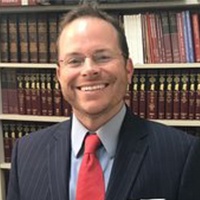Jonestown White Collar Crime Lawyer, Mississippi
Sponsored Law Firm
-
 x
x

Click For More Info:
-
The Law Offices of Richard L. Cooper, P.A.
848 Brickell Avenue Suite 800 Miami, FL 33131» view mapDWI/DUI, Drug Trafficking, Felony Nationally Ranked Top 40 Under 40
With Richard L. Cooper you can expect a trusted confidant who will work diligently to fully understand your case and determine a road map to help you regain control of your life.
800-756-2781
Not enough matches for Jonestown White Collar Crime lawyer.
Below are all Jonestown Criminal lawyers.
John C. Cox
✓ VERIFIEDA native of Cleveland , John C. Cox has been practicing law in his hometown since 1999. John began work as an associate for his late father and cous... (more)
Christopher E Kittell
✓ VERIFIEDChristopher E. Kittell is an experienced trial lawyer who practices law at the Kittell Law Firm in Hernando, Mississippi. He received his BBA in Comp... (more)
Bobby Taylor Vance
Thomas A. Womble
FREE CONSULTATION
CONTACTMary Anne Pickett
George B. Ready
FREE CONSULTATION
CONTACTSteven W. Pittman
FREE CONSULTATION
CONTACTGill Baker
FREE CONSULTATION
CONTACT
 Richard L. Cooper Miami, FL
Richard L. Cooper Miami, FL AboutMiami Attorney at Law
AboutMiami Attorney at Law ServicesCriminal Defense
ServicesCriminal Defense


